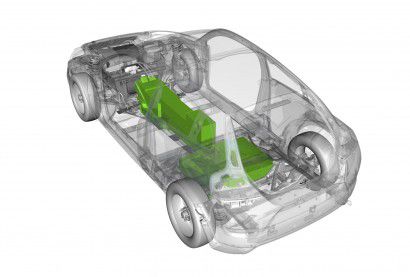-
 Blue Car
Blue Car
-
 Quadruple play
Quadruple play
-
 Furo
Furo
-
 Ligand
Ligand
-
 Microclimate
Microclimate
-
 Ribose
Ribose
-
 Xenotransplant
Xenotransplant
-
 Carbonic acid
Carbonic acid
-
 Lumen
Lumen
-
 Shark feeding
Shark feeding
-
 DVB-H
DVB-H
-
 Valine
Valine
-
 NGN
NGN
-
 Public key
Public key
-
 WYSIWYG
WYSIWYG
-
 Julian year
Julian year
-
 MicroRNA
MicroRNA
-
 Forestry
Forestry
-
 Conformation
Conformation
-
 Oceanic crust
Oceanic crust
-
 Biopsy
Biopsy
-
 Conduction block
Conduction block
-
 Radio telescope
Radio telescope
-
 Microgravity
Microgravity
-
 Plum
Plum
-
 OMZ
OMZ
-
 Ester bond
Ester bond
-
 Chikungunya virus
Chikungunya virus
-
 ESA
ESA
-
 Gastric
Gastric
Lithium-ion battery
A lithium-ion battery is an electrochemical accumulator that uses lithium in its ionic form.
Principle of a lithium-ion battery
This battery discharges electricity by the reversible exchange of lithium ions between two electrodes: a graphite anode and a metallic oxide cathode. This exchange takes place in a liquid electrolyte.
Disadvantages of the lithium-ion battery
This device presents certain risks in the event of leakage, overheating or the formation of a lithium crystal structure between electrodes. This type of battery is fitted with different electromechanical systems to prevent these potential risks.
Advantages of the lithium-ion battery
The advantages of the lithium-ion battery include its high energy density (energy per unit of volume) and its high mass energy (energy per unit of mass). In addition, this type of battery is not affected by the memory effect and has a lower self-discharge rate.
These characteristics make this battery one of the best solutions currently available for supplying electricity to nomad devices (photo camera, mobile phone) or vehicles (hybrid car, electric car).
 A lithium-ion battery powered car. © DR
A lithium-ion battery powered car. © DR
Latest
Fill out my online form.



